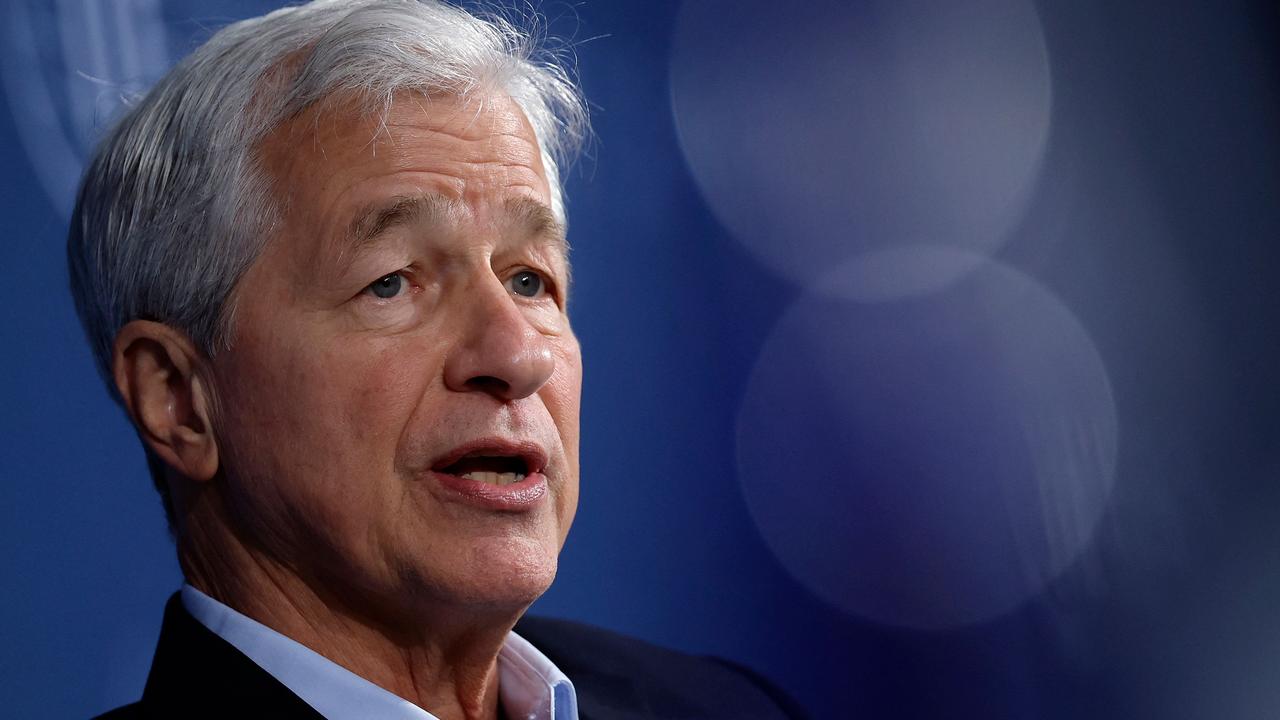Berlusconi or bust as Italy heads to polls
ITALY’S three-time leader is back in the limelight, having survived the “bunga bunga” sex scandal, a tax fraud conviction and open-heart surgery.
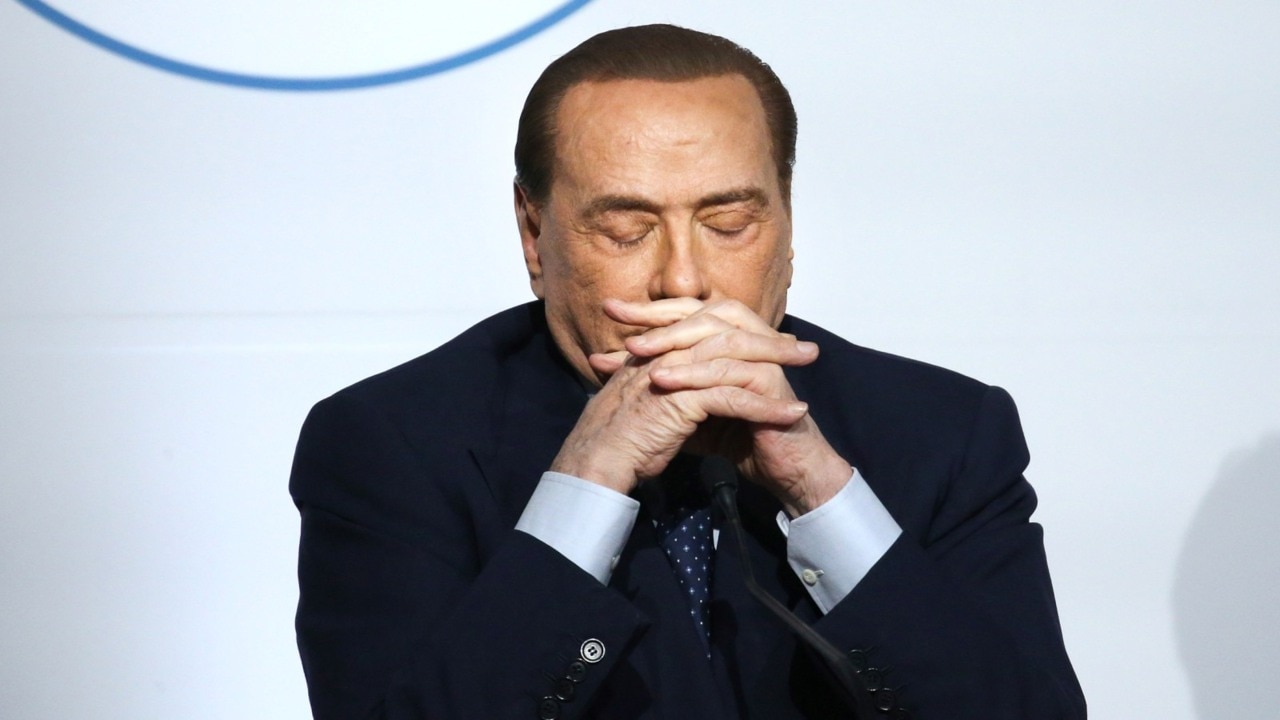
ITALY’S general elections on Sunday could see the phoenix-like resurgence of scandal-tainted ex-premier Silvio Berlusconi — or condemn the eurozone’s third-largest economy to becoming nearly ungovernable.
But while Berlusconi’s bloc has a poll lead over the anti-establishment Five Star Movement (M5S) and the incumbent Democratic Party (PD), it may not win overall control of parliament; it doesn’t help that Berlusconi’s bloc is also internally divided, fuelling doubts about its ability to last in government.
“A hung parliament or a narrow parliamentary majority for the centre-right are the two most probable scenarios,” predicted Wolfango Piccoli, co-president of Teneo Intelligence, noting that the latest projections had conservatives falling short of an outright win.
With that in mind, many analysts foresee a post-election realignment in which Berlusconi and the centre-left PD would join forces in a re-enactment of the grand coalition that has held sway in Germany since 2013.
Current government leader Paolo Gentiloni — a PD stalwart respected across the political spectrum — or European Parliament President Antonio Tajani — a former Berlusconi spokesman — have been singled out as possible compromise candidates for the premiership.
However, rising anti-establishment sentiment could also usher in a radical M5S-led government that would unsettle financial markets and Italy’s European Union partners. Alternatively, there could be major deadlock, leading to new elections before year’s end.
Opinion polls are not allowed in the last two weeks of campaigning, but before the ban kicked in, pollsters had the Berlusconi bloc near 40 per cent, and the M5S and a PD-led alliance each under 30 per cent.
Those figures are a testimony to Berlusconi’s stunning resilience, after a tax fraud conviction and parliamentary ejection in 2013, and open-heart surgery three years later. He is now courting voters with unrealistic promises to slash taxes and expel 600,000 immigrants.
In his latest guise, the 81-year-old has reinvented himself as a wise, pro-EU statesman — in contrast with the untested M5S.
“I’m like good wine, I get better with age and now I’m perfect,” he quipped this month.
The tycoon-turned-politician’s resurgence has taken place amid a tense campaign marred by political violence, most notably in the central town of Macerata, where a Nazi sympathiser wounded six African migrants in a drive-by shooting spree.
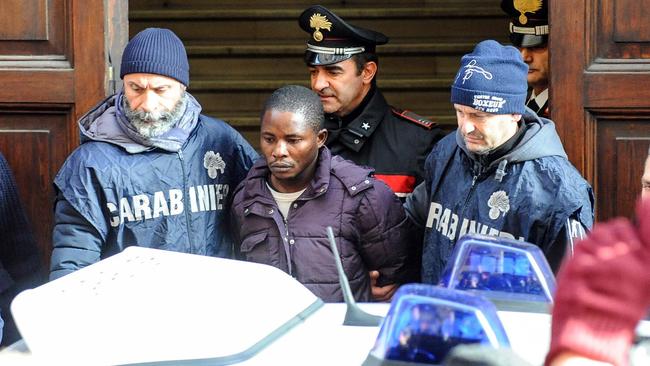
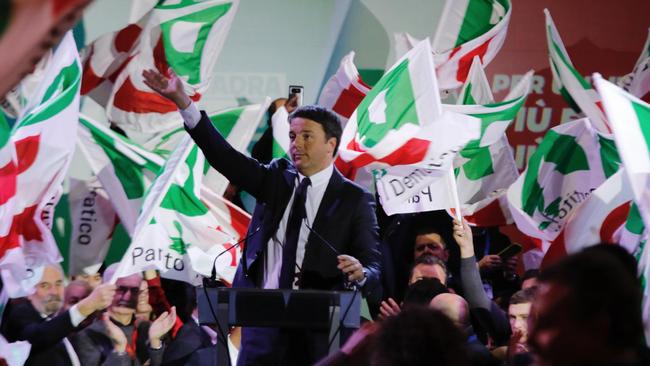
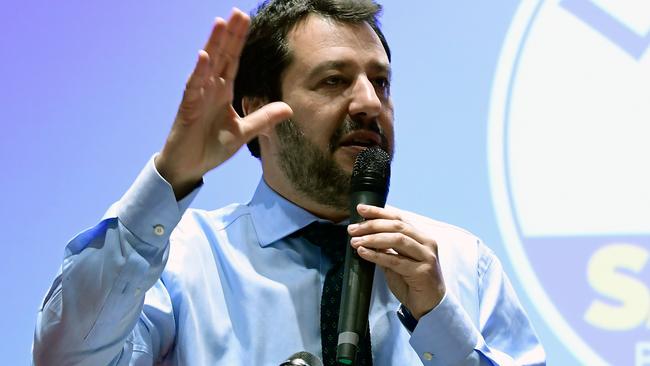
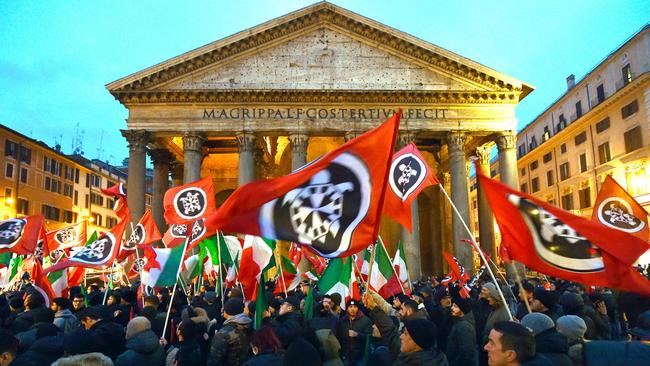
Yet Berlusconi’s revival can’t be fully realised, since his criminal record bars him from holding public office. He is also at odds with far-right ally and League party leader Matteo Salvini on the EU, protectionism and who should be prime minister in case of victory.
With pollsters estimating that about one third of almost 51 million eligible voters are undecided, the election outcome is still wide open, especially in swing southern regions where the M5S could score a historic breakthrough.
“The PD is crumbling, the race now is between us and the centre-right,” M5S prime ministerial candidate Luigi Di Maio, a 31-year-old university dropout and deputy leader of the lower house of parliament, told RAI state radio on Tuesday.
The preppy-looking Di Maio replaced comedian Beppe Grillo as party leader last year and has steered the protest party towards more moderate positions, for example, by dropping plans to hold a referendum on exiting the eurozone.
“It is time to embrace change, because there is no longer any reason to be afraid of it,” Di Maio said, pledging to exclude from his government team “the same faces you have seen for 20 years.”
To detractors, the party’s main weakness is inexperience — which is exactly what appeals to many of its fans, who are pining for a clean slate in Italy’s often- corrupt politics and are attracted by the party’s promises to introduce minimum income subsidies for the poor.
The PD, meanwhile, is struggling despite some success in office: With voters listing the economy and migration as their biggest concerns, the party can claim credit for reducing boat arrivals from Libya and lifting the country out of a record double-dip recession.
“Are you better or worse off compared to four years ago? This the question we will pose [to voters],” Renzi told journalists earlier this month — a message that seems to be failing to make inroads.
Italy’s economy is still lagging behind its EU peers, and most of the “one million new jobs” Renzi has touted are of a low-paid, temporary nature, which helps explain why there is not much of a feel-good factor benefiting his party.
In addition to bleeding left-wing votes to Free and Equals, a splinter group formed last year, the PD is being hobbled by Renzi’s popularity crisis, exacerbated by the 2016 referendum defeat on constitutional reforms that led to his resignation.
According to pollsters, the PD has a lot of potential for improvement in its poll standings, if it can win back some of its estranged voters. The results due Monday will show whether a polarising figure such as Renzi was the right man for that task.
KEY PLAYERS IN ITALY’S ELECTION
What you need to know about the five men and one woman in the Italian election.
• Silvio Berlusconi: At 81, Italy’s three-time former premier is back in the political limelight, having survived the so-called bunga bunga sex scandal, a tax fraud conviction and open-heart surgery, recasting himself as a pro-EU statesman at the helm of a poll-leading rightist coalition.
However, Berlusconi’s criminal record bars him from public office, and he has shown signs of physical fatigue while campaigning. His leadership is openly challenged by his hard-right ally Matteo Salvini, who covets the post of prime minister.
• Matteo Renzi: The 43-year-old leader of the ruling centre-left Democratic Party (PD) is struggling to regain political momentum, still smarting from the constitutional referendum defeat of December 2016 that led to his resignation as prime minister.
Formerly known as a “demolition man” who promised radical change, Renzi is now offering stability and “step-by-step” reforms. But despite an improving economy and abating migration crisis, voters don’t appear to be buying his message.
• Luigi Di Maio: A 31-year-old former football stadium steward and waiter who has been serving as deputy speaker of the lower house of parliament, Di Maio has replaced comedian Beppe Grillo as leader of the anti-establishment Five Star Movement (M5S).
Under his leadership, the M5S has softened its image, dropping plans to hold a eurozone exit referendum. Pointing to the PD’s slumping poll numbers, M5S is portraying itself to voters as the only alternative to Berlusconi’s return.
• Matteo Salvini: A firebrand populist who counts Vladimir Putin, Donald Trump and Marine Le Pen among his political heroes, the 44-year-old has revitalised his League party by campaigning against immigration and promising to put “Italians first.”
If the conservative bloc that includes Salvini wins the elections, and if the League wins more votes than Berlusconi’s Forza Italia party, Salvini says he should become prime minister. Berlusconi is instead proposing EU parliament chief Antonio Tajani for the job.
• Emma Bonino: A veteran civil rights campaigner who helped legalise abortion and divorce in the 1970s, the 69-year-old lung cancer survivor has managed to defy the prevailing mood in the country with an unashamedly pro-immigration and pro-EU message.
Her “More Europe” party, allied with the PD, is expected to do well with liberal, metropolitan voters. If it clears a 3 per cent barrier to enter parliament, it could have a pivotal role in a grand coalition scenario.
• Paolo Gentiloni: The sitting prime minister, 63, is a PD stalwart with a dull public image, but a relatively solid record in government and a quiet and unassuming style that, in contrast to Renzi, has earned him high popularity ratings and few enemies.
Along with Tajani, he is seen as an ideal candidate to lead a grand coalition government. In any case, if polls deliver a hung parliament, he will keep his job until the post-election deadlock is solved — which could take a while.
BERLUSCONI’S MOST OUTRAGEOUS QUOTES
As Silvio Berlusconi’s name hits headlines again, it’s worth going back over some of the more outrageous remarks from the 81-year-old’s three-decade political career.
• On old age: “I’m like good wine, I get better with age and now I’m perfect.” (February 2018)
• On his latest comeback: “Actually, I never went away. In any case, here I am again.” (June 2017)
• On self-esteem: “There is no one on the world stage who can pretend to compete with me.” (March 2001)
• On women: “When asked if they would like to have sex with me, 30 per cent of women said ‘Yes,’ while the other 70 per cent replied, ‘What, again?’” (April 2011)
• On Trump’s election win: “I am sure that the president chosen by the American people will be able to safeguard with authority and composure the United States’ difficult role as the leading country of the free world, within the complex and delicate world order.” (November 2016)
• On former US President Barack Obama: “Obama has everything going [for him]: He is young, handsome and also suntanned.” (November 2008)
• On the Muslim world: “We should be conscious of the superiority of our civilisation, which consists of a value system that has given people widespread prosperity in those countries that embrace it, and guarantees respect for human rights and religion. This respect certainly does not exist in the Islamic countries.” (September 2001)
• On China: “I have often been accused of saying communists eat babies. Go and read The Black Book of Communism and you will discover that in Mao’s China they did not eat babies but boiled them to fertilise the fields.” (March 2006)
• On Italian fascist dictator Benito Mussolini: “Mussolini never killed anyone. Mussolini used to send people on vacation in internal exile.” (September 2003)
• On people who don’t support him: “I have too much trust in the intelligence of Italian people to think that there are so many pricks around who would vote against their own best interests.” (April 2006)
• On Nazism: “I know there is in Italy a man producing a film on the Nazi concentration camps. I would like to suggest you for the role of [concentration camp guard] kapo.” (July 2003, to German Social Democrat Martin Schulz)
DPA



